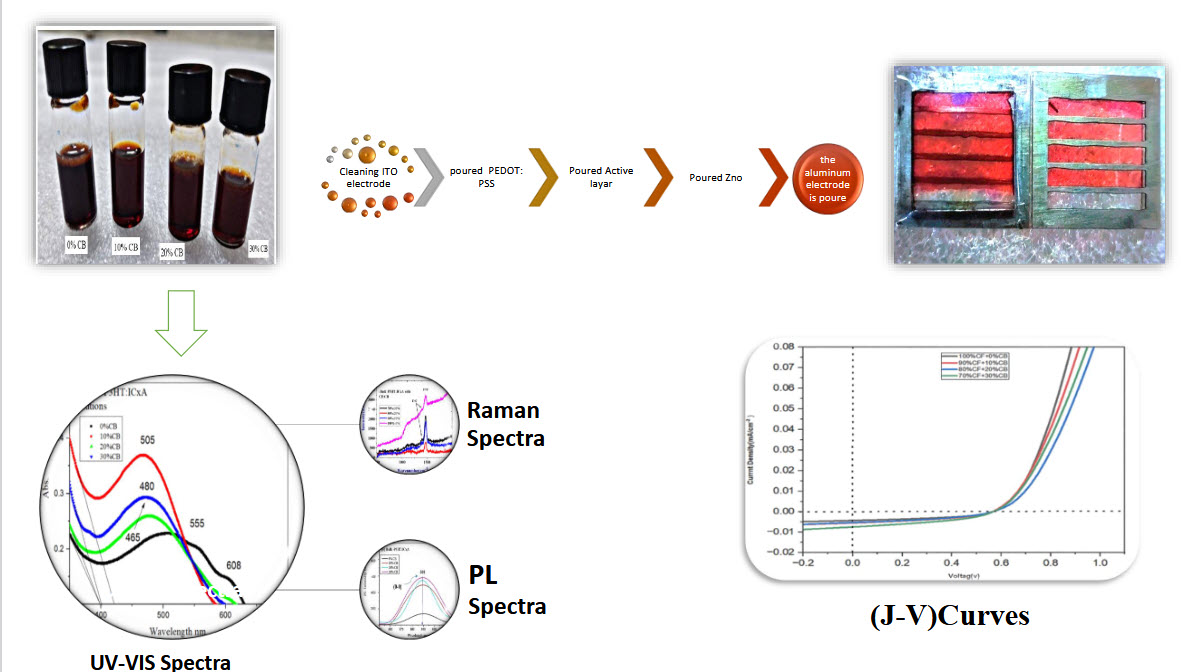Sun, Dec 29, 2024
[Archive]
Volume 21, Issue 4 (December 2024)
IJMSE 2024, 21(4): 142-150 |
Back to browse issues page
Download citation:
BibTeX | RIS | EndNote | Medlars | ProCite | Reference Manager | RefWorks
Send citation to:



BibTeX | RIS | EndNote | Medlars | ProCite | Reference Manager | RefWorks
Send citation to:
hadi R, Almyahi F. Analyzing the Effect of Mixed Solvent Ratios on the Performance of P3HT: ICxA -Based Organic Solar Cells.. IJMSE 2024; 21 (4) :142-150
URL: http://ijmse.iust.ac.ir/article-1-3699-en.html
URL: http://ijmse.iust.ac.ir/article-1-3699-en.html
Abstract: (1030 Views)
In this investigation, a formulation was developed as a solution and thin films by combining poly (3-hexylthiophene) (P3HT) and fullerene Indene-C60 multi-adducts (ICxA) with varying solvent ratios. The formulations were prepared under ambient conditions. Morphological parameters were assessed utilizing a transmission electron microscope, scanning electron microscope and complemented by optical microscope pictures. UV-Visible absorbance and photoluminescence (PL) measurements were implemented to investigate the optical properties of active layers The values of the energy gaps of the prepared thin films and solutions increased as the solvent ratios of chlorobenzene to stander solvent increased, as a result of the isolation of P3HT chains from their neighbours. The Raman spectra are associated with high aggregation of composition and increased conformation when the intensity ratio (IC= C/IC-C) is small and the full width at high maximum (FWHM) is low. In ambient conditions, organic photovoltaic cells (OPVs) are produced with varying solvent ratios. The device with a 30% ratio exhibited the highest performance, with a power conversion efficiency (PCE) of approximately 1%, an open circuit voltage (VOC) of 0.571 V, a short circuit current density (JSC) of 7.47 mA.cm-2, and a fill factor (FF) of 38.6%.
Type of Study: Research Paper |
Subject:
Synthesis and preparation of materials to meet the requirements of AM techniques
Send email to the article author
| Rights and permissions | |
 |
This work is licensed under a Creative Commons Attribution-NonCommercial 4.0 International License. |







